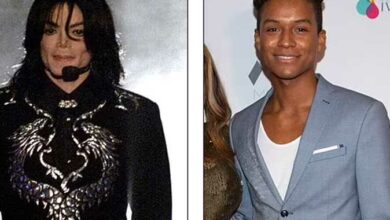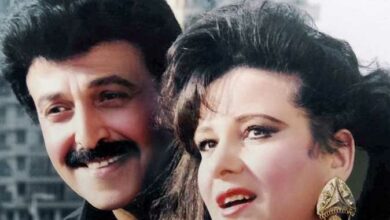Like most cities in the Middle East today, Cairo has an elusive, hybridized charm. Everywhere you go tradition is mixed with a palpable fascination with the new, a fetish for everything shiny and futuristic.
Those of us living here accept the fact that ancient monuments like the pyramids are juxtaposed with garish new buildings. Or that international brands like McDonalds and Nike advertise their latest products next to historic mosques.
Mixing the consumerism of the twenty-first century with religion and history has become part of our contemporary culture. It is something we take entirely for granted.
But one man, Ahmed Abu Haiba, has taken this seemingly natural evolution one step further by launching the world’s first Islamic music video channel.
Airing funky videos by rap, hip-hop, and pop artists from around the world, 4Shbab is specifically targeting Arab youth. The goal is to provide them with an Islamic alternative to the raunchy videos on mainstream music channels.
Saudi-funded 4Shbab also features an impressive line up of talks shows, soap operas, and even game shows. But their flagship program is "Sootak Wasel," an Islamicized version of the popular star academy/pop idol format.
"Sootak Wasel" shows would-be singers as they compete against each other for the chance to win a recording contract and the opportunity to star in their very own Islamic music video.
The first stage of the competition is conducted in the form of on-air auditions where amateurs call in to be judged by a Saudi host and an Egyptian music expert. This has already proven to be a successful recruitment tool for the new channel.
"I am entering a virgin industry," Abu Haiba says. "I need raw talent to create pop stars. This show gives me the opportunity to listen to amateurs while also entertaining viewers. In other words, I am killing two birds with one stone."
The premier of the competition was held last Friday night at the garden of the Cairo citadel, where twelve contestants from around the Arab world competed for the title of “Best Islamic Singer.”
Rehearsals began in the early afternoon, and as contestants began to practice, it became clear that the standard of the amateurs was surprisingly high. It was going to be a tough competition.
As the sun set on the citadel, the seating area began to fill up. By 8 PM you could see that the audience was segregated, men on the right and women on the left. No one was sure if this was planned or something that happened spontaneously.
Abu Haiba has already been accused by some western journalists and academics of promoting a chauvinistic mentality on his channel. 4Shbab does not showcase any female singers and only portrays women in the roles of mothers, sisters, or housewives.
To some, like AUC graduate student Yasmine Khalifa, this is offensive. “All the actors in 4Shbab’s videos are men. By excluding them entirely you are promoting a viewpoint that women are invisible, not active participants in Arab society.”
The politics of 4Shbab’s editorial policy involve a difficult balance. Abu Haiba’s audience, not to mention his investors, may be modern and hip, but they are still very conservative.
“I know that the West will always ask that question: Where are the women? But they must understand that to many Muslims hearing women sing is a sensitive subject. We can’t offend their values when we are still gaining their trust.”
At the citadel, contestants waited nervously for their names to be called. One by one, they got on stage and put on the performance of their lives.
By 11 PM the judges had made their decision. Two Syrian singers and a young Saudi were named the winners of this year’s competition. In a few months they will return to Egypt to shoot their first ever Islamic music video.
Mohamed, one of the two Syrian winners, tell us that he would not trade this profession for the world. And when asked if he could resist the temptations of the mainstream pop industry with all its money and glitz, Mohamed says, "Yes it might be difficult. But nothing could be better than this. God gave me this talent and so I have to be grateful by giving back to him.”
Time will tell if 4Shbab will be able to break into the crowded market for music videos on Arab channels. Preliminary signs indicate that Ahmed Abu Haiba may have found a niche among educated conservatives in the region.




